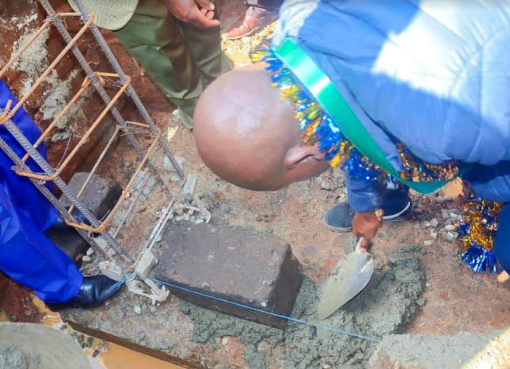Small scale traders in Kisumu County have raised alarm over poor sales and returns due the high cost of living in the country.
They claimed that the high inflation rates have eroded the purchasing power of most residents, making it difficult for both traders and their customers to afford basic goods.
Hamilton Omondi, a 29-year-old entrepreneur, at Kibuye market in Kisumu has been running the cereal business for several years, weathering the storms of fluctuating market prices and evolving consumer behavior.
However, Omondi laments that the recent surge in inflation has dealt him a harsh blow, threatening the viability of his business.
“The cost of goods has been rising sharply, while customer spending has reduced significantly, basic commodities like maize, beans, groundnut, greengrams are now beyond the reach of many of my regular customers, this has led to a significant drop in sales reducing profits,” he said during an exclusive interview with KNA at Kibuye market.
The handwritten ledger records tucked under his counter tells a grim tale. Sales have plummeted since January.
The young trader adds that low demand of products has further depressed prices, creating a vicious cycle of low sales and dwindling profits.
The situation, he says, is exacerbated by external factors such as frequent floods during the rainy season, which disrupt supply chains and deter customers from venturing out.
The lack of adequate shade and space in his current location also hampers his ability to attract and serve customers comfortably.
Like many other entrepreneurs, Omondi says he faces a dilemma between raising prices to cope with rising costs and maintaining affordability for their customers.
“I have been trying to secure a loan to expand my business and improve my infrastructure, but the interest rates are prohibitively high, ranging between 23-24%,” he laments, this makes it nearly impossible to invest in crucial improvements like a shade structure, additional storage space, and a reliable delivery vehicle.
Despite the mounting challenges, Omondi remains determined to keep his business afloat. He believes that with the right interventions, he can steer his grocery store back to profitability.
“I am hopeful that with access to affordable credit and strategic partnerships, I can overcome these challenges,” Omondi proposed, “I am also exploring diversification of my product range to include more value-added products and services, such as after-sales services and local deliveries.”
His plea for government support, access to affordable finance, and a conducive business environment resonates with countless entrepreneurs across the region.
By Christine Akoth and Matilda Waswa




